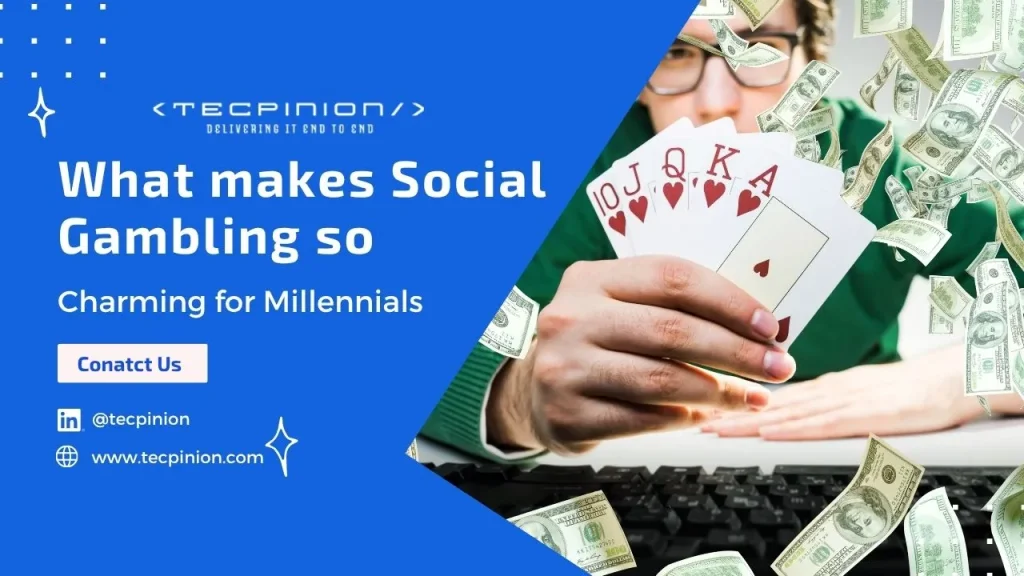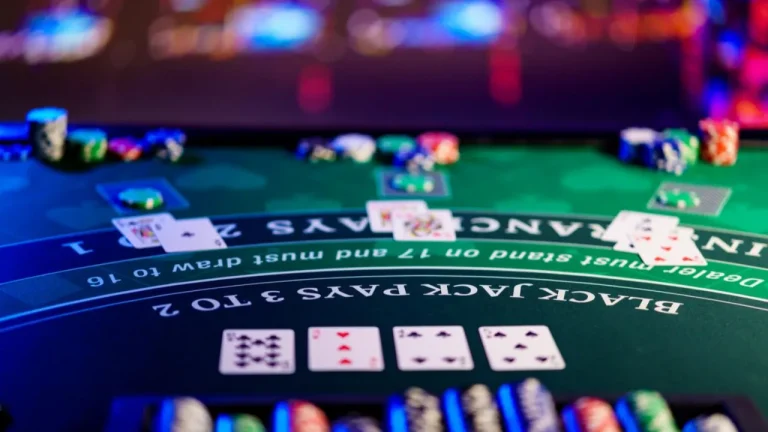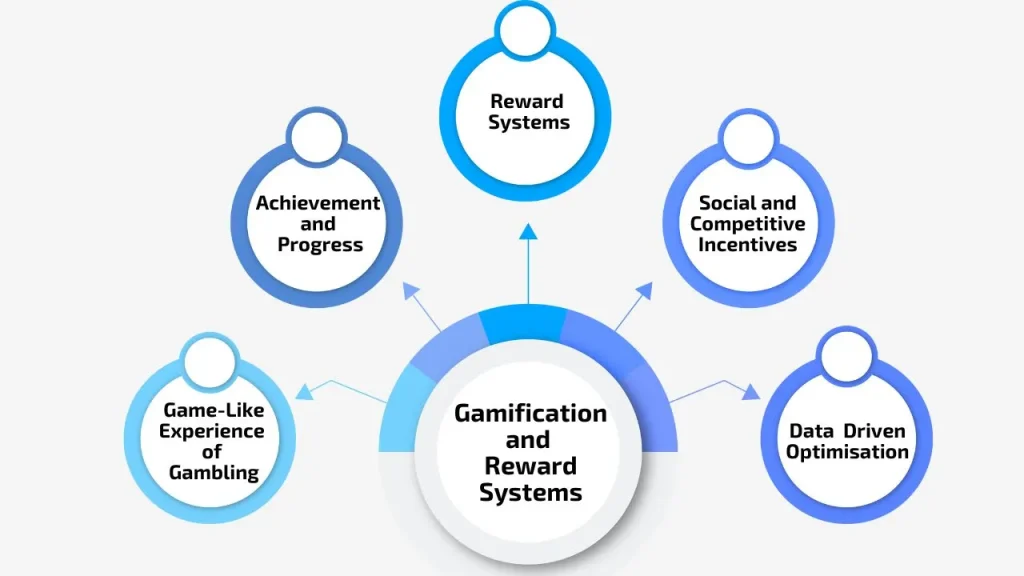Why Do Millennials Favour Social Gambling Over Classic Casinos

Table of Contents
- Introduction
- What Is Social Gambling?
- The Digital Influence on Gambling Behaviour
- Gamification and Reward Systems
- Monetization Models in Social Gambling
- Why Millennials Choose Experience Over Profit
- Comparison: Social VS Classic Casino
- How Online Communities Shape Gambling Trends
- Key Takeaways
- Tecpinion: Ideal Choice for Social Gambling Software
- Faqs
Overview of The Sweepstakes Model
Millennials have played a major role in the rise of social gambling over the last few years. What makes social gambling more appealing to millennials? How does it impact the future of gambling? Read more to find out.
Millennials refer to the generation of people born between 1980 and 2000 who grew up during an era of rapid technological evolution, social media expansion, and economic uncertainty. Their influence is clearly evident in how products and services are being consumed lately, and it is likely to increase over time.
This trend is similar and applies to gambling companies and casino operators as well. Therefore, it is high time for casino gaming manufacturers to reassess their approach and determine whether it aligns with the mindset of millennials.
Technological accessibility, social interactions, and a preference for meaningful experiences over the joy of material possessions shape the millennials’ mindset. So even their gambling habits and behaviour are typically influenced by these core values.
They have different perceptions of casinos. The preceding generation considered casinos and gambling to be an attractive destination or a source of high-stakes entertainment. Whereas millennials perceive gambling as a form of social engagement and casual fun, and it does not necessarily involve money.
Current Market Stats
The forecasts predict that the social casino industry is expected to reach $13.16 billion in 2029 from its current value at $9.24 billion, with a CAGR of 9.2%.
What is Social Gambling?
Social gambling is a form of gambling that offers opportunities for connection, competition, and shared experiences. These qualities often lack in a traditional casino environment. Social casinos are changing how players experience online gambling.

In recent years, the mode of digital transactions has become a core component of the gaming platform. The increasing demand for fast and secure payment from gambling consumers has led to the growth of online casino payment in the market. Online casino payment providers, too, are constantly working out ways for improvements to ensure a dynamic transaction.
If you are looking to upscale your casino software and offer the best payment services for your end users, then choose Tecpinion as an online casino provider. Our B2B casino solutions enable safe, quick transactions and support multiple payment modes that include credit cards, e-wallets, bank transfers, debit cards, and more.
How Does Social Casino Differ From a Conventional Online Casino?
- Free-to-Play Model: Most games offer free accessibility, accompanied by in-app purchases for virtual coins, bonus spins, or points.
- Social Interaction: Gaming tools such as leaderboards and shared tournaments enable players to chat, compete, and cooperate with friends.
- Gamified Experience: Elements such as achievements, badges, daily rewards, and challenges do enhance engagement.
- Multi-Platform Access: It is often hosted in mobile apps or social media, allowing for seamless play anytime, anywhere.
- Building Community Connection: Social media invites and referral systems ensure a communal experience rather than a solitary one.
The Digital Influence on Gambling Behaviour
Millennials are socially driven and deeply value experience over profits find social gambling platform more appealing as it provides them with a casual and digital form of entertainment. It creates a gaming environment that is more engaging and features interactive elements that spark their interest in gambling and playing more.
Digital technology has had a significant impact on gambling behavior by increasing accessibility, convenience, and immersion. In this age of smartphones, online platforms, and social media, it is easier to gamble frequently and discreetly. The following are how the digital medium affects gambling behavior.
-
Accessibility and Convenience:
1. Digital platforms have made gambling available anytime and anywhere.
2. Instant accessibility from mobile devices and social media sites. -
Gamification of Gambling:
1. Technology has helped create an immersive and engaging environment for gambling, offering dynamic betting options.
2. Elements such as achievements, levels, challenges, and virtual rewards give millennials a sense of accomplishment. -
Social Media Integration:
1. Social networks form by incorporating features such as lists, leaderboards, and chat rooms.
2. It facilitates shared experience rather than an isolated pastime. -
Continuous Engagement:
1. Attributes such as push notifications and live updates keep millennials constantly engaged.
2. This digital ecosystem can foster a long-term relationship with players. -
Reduced barrier and Risk:
1. Digital formats offer on-demand entertainment, attracting users who prefer digital experiences over physical casinos.
2. Technological tools lower barriers, encouraging them to participate frequently.
This is how the digital medium has impacted the gambling behaviour of the younger generation players. In recent times, along with technological advancements, the gamification aspect of gambling has also evolved. To what extent did the gamification aspect encourage millennials to engage in social gambling?
Gamification and Reward Systems

Millennials are digitally native, yet socially driven, and value meaningful experiences. Interactive features, such as chat rooms, friend invites, and leaderboards, available in social casinos give them a feeling of enjoyment and comfort.
These social aspects could benefit players looking for a network and entertainment in one place. The framework enables a consistent flow of incentives, including daily bonuses, free spins, points, and credits. The gamification boosts social casino’s focus on entertainment and rewards without real money loss.
Game-Like Experience of Gambling:
- Gamified gambling platform prioritises progress, achievement, and competition.
- Levels, missions, and leaderboards can keep the players more motivated and engaged.
- Unlocking new challenges, collecting badges, or climbing ranks makes the player journey more eventful.
Achievement and Progress:
- Small, yet consistent wins that generate a sense of accomplishment.
- Progress markers, such as experience points or unlocked badges, give them a sense of advancement.
- This negates the frustration with traditional gambling losses.
Reward Systems:
- Social casino rewards millennials with virtual currencies, loyalty points, and collectible items.
- They also receive badges, bonuses, free spins, and exclusive access to events for accomplishments or regular participation.
- This Reward Loop is Highly Effective in Sustaining Interest.
Social and Competitive Incentives:
- Gamified platforms have been integrated with social leaderboards, team challenges, and tournaments for friendly competition.
- Badges and achievements give social recognition and validation.
- Team activity and community participation convert gambling into a shared digital experience.
Data Driven Optimisation:
- Modern algorithms are used to personalise user experience, offering them tailored rewards, missions, or bonuses.
- Customized engagement leads to more satisfaction and reinforces loyalty.
- This tool can attract the maximum number of millennials to the platform.
This has provided us with a clear understanding of how gamification and reward systems encourage more users to engage in social gambling.
By now, you would have wondered if social gambling offers only freemium tools and functionalities, how do they earn profit or revenue? Well, monetization models do exist in social casinos, but they differ from those in classic casinos.
Looking for Social Gambling ?
Monetization Models in Social Gambling
Advertising and in-app purchases have been the common methods that operators use to generate revenue in social gambling. As it does not offer real-money cashouts to players, businesses need to incorporate creative monetization strategies that strike the right balance of engagement, retention, and profitability.
-
In-App Purchases:
1. Players can purchase additional chips or exclusive tools using real cash.
2. Flash sales, limited-time bundles, or VIP packages that encourage microtransactions.
3. Frequent purchases from elite users account for most of the revenue. -
Freemium Models:
1. Anyone can play freely, but can pay for convenience and faster progress.
2. Requires a premium membership to participate in special challenges and events.
3. This leads to an increase in conversion and engagement. -
AD-Based Monetization:
1. Players earn free chips or coins after engaging with video or sponsored content.
2. It ensures that even non-paying players can contribute to the platform's profitability.
3. Other means of receiving in-game rewards include downloading an additional app or signing up for a service. -
Cross Promotion and Brand Partnerships:
1. Business income through strategic collaboration of brands or other apps.
2. Allows for cross-promotion of games within the same developer ecosystems.
3. Affiliate campaigns that redirect players to other platforms. -
Social Gifting:
1. Social mechanisms motivate players to give virtual items or chips to friends.
2. Elements such as group missions, team challenges, and leaderboards encourage players to spend more.
3. Facilitates social-driven engagement of the user.
These models not only drive millennials, but also social gambling businesses to earn profits. Millennials choosing social gambling proves that they value experience over monetary gain.
Why Millennials Choose Experience Over Profit
-
Valuing Experience:
- They value shared experience of playing, social engagement, and immersive gameplay.
- These individuals prioritize activities that provide memories, stories, and connections.
-
Entertainment Driven:
- This generation sees gambling as a means of having fun in a socially connected environment.
- They consider gambling as a form of digital entertainment during their leisure time.
-
Emotional Fulfillment:
- Millennials choose games that allow them to connect with friends, share achievements, or compete comprehensively.
- Winning a virtual badge, or topping the leaderboard, outweighs their happiness over potential monetary gain.
-
High Fun Appeal:
- Free-to-play casino games cater to the desire for risk-free enjoyment.
- This makes it a fun play for people who are curious but cautious.
-
Community Interaction:
- Millennials have a greater craving for interaction, collaboration, and shared experiences.
- They desire online spaces where they can connect, compete, and celebrate with peers.
Comparison: Social VS Classic Casino
There is a significant difference between social and traditional casinos that extends beyond physical versus digital spaces. It currently reflects the generational shift in values, lifestyles, and entertainment expectations.
| Classic Casino | Social Casino |
| Physical casinos emphasize luxury, exclusivity, and the in-person experience. | Social casinos account for casual, convenient, and flexible gaming spaces. |
| Chance to win financial rewards associated with high risk. | Offers virtual coins and credits, making it an enjoyable and low-risk entertainment. |
| The interaction is limited and transactional, focusing on individual wins. | Builds the atmosphere for collaboration and social experiences, allowing players to share achievements, send gifts, and engage in other activities. |
| Traditional games like poker, roulette, or blackjack. The fun comes from the thrill of risk or winning money. | Gamified elements, such as missions, achievements, and tournaments, make it more enjoyable. |
| Difficulty in adapting to the latest digital trends | Highly flexible in integrating with AI tools, social media, mobile gaming, and personalization features. |
How Online Communities Shape Gambling Trends
Online communities are a safe digital space that fosters discussions among users. It offers a wide-scale social connection that can give rise to adopting new gambling behaviour to enrich their experience with the platform even further.
-
Social Belonging:
1. It fosters a sense of community belonging among players, allowing them to share wins and celebrate milestones together.
2. Digital circles and online spaces encourage more participation in a shared culture of play. -
Social Validation:
1. Online communities are where millennials look for positive feedback, game reviews about a gambling app.
2. Online forums enable peer-driven promotion, which appears to be more effective than traditional advertising. -
Collaborative nature:
1. Knowledge-sharing culture and collaboration have been the hallmarks in this online space.
2. A platform to discuss strategies, post tutorials, and allow users to learn and improve over time. -
Social Media Influencers:
1. Social platforms such as YouTube, Facebook, and TikTok are prompting gambling influencers and streamers.
2. They contribute to a more fun and friendly experience by showcasing social casino games or free-play environments. -
Emotional Safety and Social Networks:
1. Generally, online communities offer emotional support and shared accountability.
2. High possibility of a supportive connection that cherishes them even more.
This illustrates the significant impact that online communities can have on shaping the future trends in gambling.
Key Takeaways
Millennials, who gamble for fun or as a form of casual entertainment, may seem less interested in traditional casinos. In a social casino, where most games are free to access and utilize virtual currency and bonus points, low-risk entertainment makes it ideal for millennials.
Social gambling utilizes gamification tools, including levels, missions, and leaderboards, to keep users highly engaged and entertained. As they grew up in the technological era, they are social and inclined to be part of a connected environment, rather than engaging in solitary activities. Can social gambling be a profitable business for casinos? Even though it might not involve real money, it can generate revenue and earn a profit by implementing monetary models, such as in-app purchases, freemium models, ad-based monetization, cross-promotion, and social gifting. These models are crucial for social gambling to thrive in this dynamic gaming environment.
Tecpinion: Ideal Choice for Social Gambling Software
Social casino gambling software companies have to be more creative to design a business plan that matches with psychological needs of the millennials. Basic gamification features are not particularly effective and are considered outdated.
Tecpinion has been one of the most trusted and leading social casino software platform providers, offering solutions with on-demand customizations that enable clients to truly maximize their growth potential. The platform is integrated with an advanced gamification toolkit, creating an immersive experience for the users and driving engagement
AI-enabled tools play a major part in guiding businesses in various ways to progress faster with higher efficiency. The multi-platform compatibility and multicurrency support can make it more convenient and comfortable for a global audience.
FAQs
- What is social gambling?
Social gambling is a form of gambling that offers opportunities for connection, competition, and shared experiences. These qualities often lack in a traditional casino environment.
- Do social casinos pay real money?
Social casinos are platforms where players engage in simulated gaming using virtual coins, credits, or points, without the use of real money. In some cases, virtual coins can be redeemed for cash prizes.
- Do millennials gamble for money or for entertainment?
Most millennials perceive gambling as an entertainment that creates meaningful experiences rather than considering it as financially rewarding.
- What gamification elements attract millennials to social casinos?
Elements such as rewards, points, achievements, and virtual currencies create a sense of positive advancement with no financial risk.
- How does technology affect Millennials?
Digital technology has had a significant impact on gambling behavior by increasing accessibility, convenience, and immersion. In this age of smartphones, online platforms, and social media, it makes it easier to gamble frequently and discreetly.


